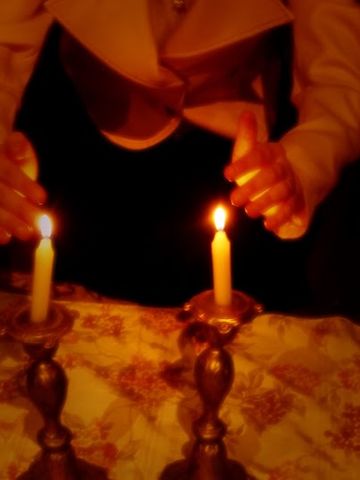This past Friday night, February 5, Hillel at UCLA hosted “Interfaith Shabbat,” an evening with programming for non-Jewish visitors interested in learning about Judaism and Shabbat and/or building rapport with Jewish students. The evening began with a choice of Orthodox services, egalitarian services, or interfaith dialogue through text study regarding the value of rest in Judaism and Islam. A Moroccan dinner shortly followed accompanied by a spoken word poetry performance about peace by Jewish and Muslim students. Throughout the evening, Jewish and non-Jewish students were encouraged to mingle and engage in respectful dialogue, with explanations preceding and succeeding Shabbat rituals such as kiddush, hand washing and ha’motzi.
The evening was an incentive for non-Jewish visitors to learn about a cornerstone of Jewish practice, as well as an opportunity for interfaith dialogue in a respectful arena. It seems to have been successful—the egalitarian services were described as “packed” by an attendee and the area reserved for the interfaith text learning and discussion was crowded. Attendees, both Jewish and non-Jewish, likely enjoyed the evening and came away with a greater understanding of Shabbat rituals.
However, although the organizers’ motivations may have been admirable, I question their choice of execution and setting. Answering a query about one’s faith is one thing. Inviting an individual to dinner is another. But inviting conversation and discussion between members of distinct faiths by means of religious ritual and service is an entirely different kettle of questionably kosher fish. Religious services should not be the place for interfaith discussion about faith (if there is a place for such discussion, which tends to have very few, if any, practical benefits)—they should be a conversation with God and the self.
In general, interfaith faith-based dialogue and debate have not been encouraged by rabbis throughout Jewish history and by contemporary Orthodox and chareidi rabbis. As Rabbi Joseph B. Soloveitchik argued in his 1964 essay “Confrontation“,
“The word of faith reflects the intimate, the private, the paradoxically inexpressible cravings of the individual for and his linking up with his Maker. It reflects the numinous character and the strangeness of the act of faith of a particular community which is totally incomprehensible to the man of a different faith community. Hence, it is important that the religious or theological logos should not be employed as the medium of communication between two faith communities whose modes of expression are as unique as their apocalyptic experiences. The confrontation should occur not at a theological, but at a mundane human level. There, all of us speak the universal language of modern man.”
As Rabbi Soloveitchik writes, to believe in different faiths means that to hold different perspectives and values, which inevitably affect intercommunication. Interfaith faith-based dialogue inherently means acquiescing to another’s perspective and language, which itself means surrendering, however briefly, one’s own beliefs.
From a historical perspective, interfaith dialogue and debate has rarely, if ever, benefited Jews, as engaging with another who does not understand, or is religiously unable to understand, Jewish beliefs may result in misunderstanding and perversion of Judaism. From a purely utilitarian perspective, there isn’t much good that comes to Jews out of debating Judaism or teaching it to members of another faith.
Furthermore, Shabbat specifically is considered sacred to Jews as a sign of devotion to God and testament to the six days of creation. The Torah makes it very clear that Shabbat is a gift given to Jews, a day set aside for Jews to spend with God. Shabbat has traditionally been a hallmark of Jewish identity and connection; as Ahad Ha’Am famously wrote, “More than Israel has kept the Shabbat, the Shabbat has kept them” (“Shabbat v’Tzioniyut”). Depreciating Shabbat to an exhibition shifts the focus from a relationship between God and Israel and one Jew to another Jew, to a relationship between Jews and non-Jews. While individual Jews may value such a relationship to different extents, it has no place in upstaging the time that has, for millennia, been designated for the development of a deeper relationship between God and a Jew.
I do applaud the organizers of “Interfaith Shabbat” for their time and effort successfully spent on an event to promote friendliness and understanding between members of often conflicting groups. But perhaps an event without religious affiliation would be both more effective and respectful of Judaism and Jewish values.

